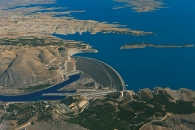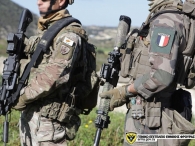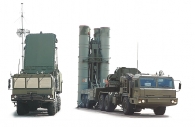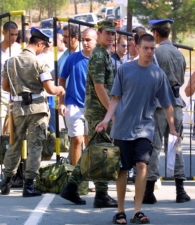TURKEY'S ASPIRING HYDROLOGICAL HEGEMONY:
THE IMPACT ON THE REGIONAL POLITICAL AND SECURITY DEVELOPMENTS
|
|
Constantinos Adamides Assistant Professor of International Relations and the Director of the Diplomatic Academy at the University of Nicosia |
Turkey’s geopolitical importance is unquestionable; in the middle of three regional security complexes - the Balkan (sub-complex of the European), the Caucasus (sub-complex of the ex-Soviet region) and the Middle Eastern – it has the capacity to act either as an insulator state when it is advantageous, as with the case of the ongoing tragic refugee crisis, or in a non-insulator and hegemonic manner with the capacity to project its power over its weaker neighbors. One of way of projecting its power is by utilizing its hydrological resources.
The hydrological environment in the Middle Eastern region, and more specifically the increasing water shortage in Syria and to a lesser degree Iraq, enhances Turkey’s ability to behave as a regional hegemon by utilizing its access to the Tigris and Euphrates rivers as the upper riparian state in the region (see map).
Since the founding of the state, Turkey had a profound understanding of the impact its water resources could have within the country as well as regionally, but it was not until the 1960’s and 1970’s that it started investing in the necessary infrastructure. At the heart of the strategic developments for utilizing the country’s water resources was the Southeastern Anatolia Project (GAP), with an ultimate goal of constructing twenty-two dams and nineteen hydropower plants. Even though the project is not yet fully implemented, a large part of it has been concluded, especially the parts related to hydropower, as opposed to those that are to be utilized for irrigation purposes. One of the most important (completed) pieces of the project is the Ataturk Dam and the hydroelectric plant linked to it, with the ability to provide 2,400MW of electricity (to put it in perspective, the maximum capacity for the Republic of Cyprus is approximately 1,200MW).
The development and utilization of the Ataturk dam has been one of the chief reasons that led to regional water shortages in Syria and Iraq since the 1990’s, especially in times when Turkey needs to keep the water level in the dam above a certain level. It is not surprising that Iraq accused Turkey repeatedly of violating the commonly agreed formula for water distribution and that Turkey, as the upper riparian state, does not operate within the framework of the 1946 Turkey-Iraq “Treaty of Friendship and Good Neighborly Relations”. The latter does not seem to share its neighbors’ view or indeed the international norms of water sharing; on the contrary Turkey has been treating the two rivers as its own natural resources and as a question of state sovereignty without any concern for the two downstream states. As the former Turkish Prime Minister, Süleyman Demirel, noted over fifteen years ago, “neither Syria nor Iraq can lay claim to Turkey's rivers any more than Ankara could claim their oil. This is a matter of sovereignty. We have a right to do anything we like. The water resources are Turkey's, the oil resources are theirs. We do not say we share their oil resources, and they cannot say they share our water resources”. [1]
It is not surprising that Turkey’s position on the river flow distribution enhances its neighbors’ water insecurity; both Iraq and Syria depend greatly on the rivers for irrigation purposes, while the latter also depends on them for hydroelectric power. The impact of the water and electricity shortages should not be underestimated, especially in regions where the governments are weak or failing and thus unable to mitigate the people’s concerns and find timely alternatives. In Syria the water shortages and the subsequent impact they had on the region’s agriculture have let to repeated waves of internal migration and rising anti-Assad sentiments, which in turn contributed to the Syrian civil unrest and subsequent violence. It is worth noting that the prospect for these water-induced problems was not an unpredictable or improbable development. Long before the eruption of violence the US State Department warned of the potential impact of the ongoing water crisis in the region, arguing that “the emerging water crisis carries the potential for severe economic volatility and even socio-political unrest” in the region.[2] Unfortunately the regional status of affairs is not likely to improve in the near future; the Islamic State’s (IS) military control and overuse of some of the biggest (hydro-electric) dams in Syria, coupled with the Turkish approach of controlling the water flow based on its politico-economic needs do not leave much room for optimism for the millions of Syrian and Iraqi civilians who depend on the two rivers’ water.
Turkey’s behavior to control the rivers’ flow is not unexpected; on the contrary it is in line with its long-term strategy to become a regional hydrological superpower, thus enhancing its regional hard power capabilities. As the upstream state with the ability to control the water flow, Turkey enjoys a power asymmetry vis-à-vis its neighboring states, which could easily be utilized as a powerful political instrument and if necessary as a weapon in its military’s arsenal. Similarly, it could also be used to enhance the government’s political and military power vis-à-vis domestic threats, and more specifically the Kurdish population. Located in the southeast – and Kurdish dominated – part of Turkey, the Tigris and Euphrates infrastructure projects could potentially lead to more regional employment and economic opportunities which should be, theoretically, very beneficial for the region. However, opponents of this project question the incentives of the Turkish government arguing that the specific projects are used to undermine the Kurdish identity in the region. Equally interesting is the fact that many of the dams are built on the borders in a way that they create physical barriers for potential border-crossing Kurdish militants.
Soft Power and the “Project of the Century” in Cyprus
Hydrological hegemons could use water-power to project soft power, and it is within framework that Turkey initiated and successfully completed the so-called “project of the century” that physically links Turkey with Cyprus. The project is indeed unique from an engineering perspective as the middle part of the pipeline consists of 80.15km-long underwater pipes that are suspended 250m below the surface. The aim is to transfer 75,000,000 cubic meters (75 mcm) of fresh water per year for drinking and irrigation purposes from the Alaköprü dam in Turkey to the northern shores of Cyprus. However, the importance of this project does not revolve solely around the supply of much-needed water to the Turkish Cypriot community, but also around the way Turkey markets this project. The project’s successful completion is portrayed as evidence of Turkey’s ability to act as a hydrological superpower in the region; as such it is the first state ever who has managed to complete such a project, while it is also the state that can provide societal and economic solutions to regional problems. Thus, the project is also a clear projection of soft power with symbolic impact, albeit with very significant political implications for Cyprus on both sides of the Green Line. Indicative of this symbolic impact is the fact that Turkey also calls this project “peace water project”; a description that is not in any way coincidental. Unlike the aforementioned case of Syria and Iraq where Turkey used its hydrological resources as part of its hard power and made sure that it was understood as such, in the case of Cyprus it wants, and is in a position, to use them as a tool to achieve its soft power strategy and political goals.
The aim of this short analysis is not to profoundly and exhaustively analyze the impact of this project on Cyprus. That said, we cannot ignore the rather obvious argument that Turkey acquires even more control over the Turkish Cypriot community by providing the latter the most important and necessary resource for survival and growth; one that neither the Republic of Cyprus nor the “Turkish Republic of Northern Cyprus” (“TRNC”) administration could provide. Thus, there is now an asymmetric relation on one more important aspect (further to the existing asymmetric economic and security relations) between Turkish Cypriots and Turkey. Similarly, we cannot ignore the view that the water infrastructure could also be, and most likely is, the precursor of further projects that could include electricity and fiber optics (internet) links between Turkey and the “TRNC”, thus solidifying further the two sides’ asymmetric relations and dependency.[3]
Lastly, one must not discount the political impact of the project on the Greek Cypriot side. The current and future Turkish suggestions for “water for natural gas” and “enough water for the entire island” should not be taken lightly. Even though the current infrastructure is not suitable for natural gas transfer or even additional water, it allows Turkey to gain the moral high ground in the eyes of the international community as the actor that uses its natural resources and soft power to promote regional peace and cooperation. This is not to say that there are no prospects for water-related cooperation between Cyprus and Turkey in a post-settlement environment; on the contrary the opportunities are indeed very realistic and feasible.[4] However, until there is a settlement, the Republic of Cyprus should not ignore Turkey’s hydrological soft power and the impact it could have on: (i) the ever-growing Turkish Cypriot dependency on Turkey and (ii) on the politico-economic impact on the Turkish Cypriot community and the new status quo that will be created in the northern part of the island, which will inevitably influence the settlement negotiations.
[1] BBC (2000). Available at:
http://news.bbc.co.uk/2/hi/programmes/correspondent/958132.stm.
[2] Wikileaks 2006. “Survey of Syrian Water Sector”. Available at:
https://wikileaks.org/plusd/cables/06DAMASCUS4094_a.html
[3] The current infrastructure does not support either electricity or fiber optic cables.
[4] Suffice to say that the 75mcm to be transferred annually to Cyprus constitute only 10% of the Dragon river’s capacity (the river that supplies the water to Alaköprü dam). Thus any plans to transfer more water in the future, with the necessary additional infrastructure, is indeed both feasible and possible.
8.11.2015
Source: In Debth, October 2015, CEIA, Nicosia






